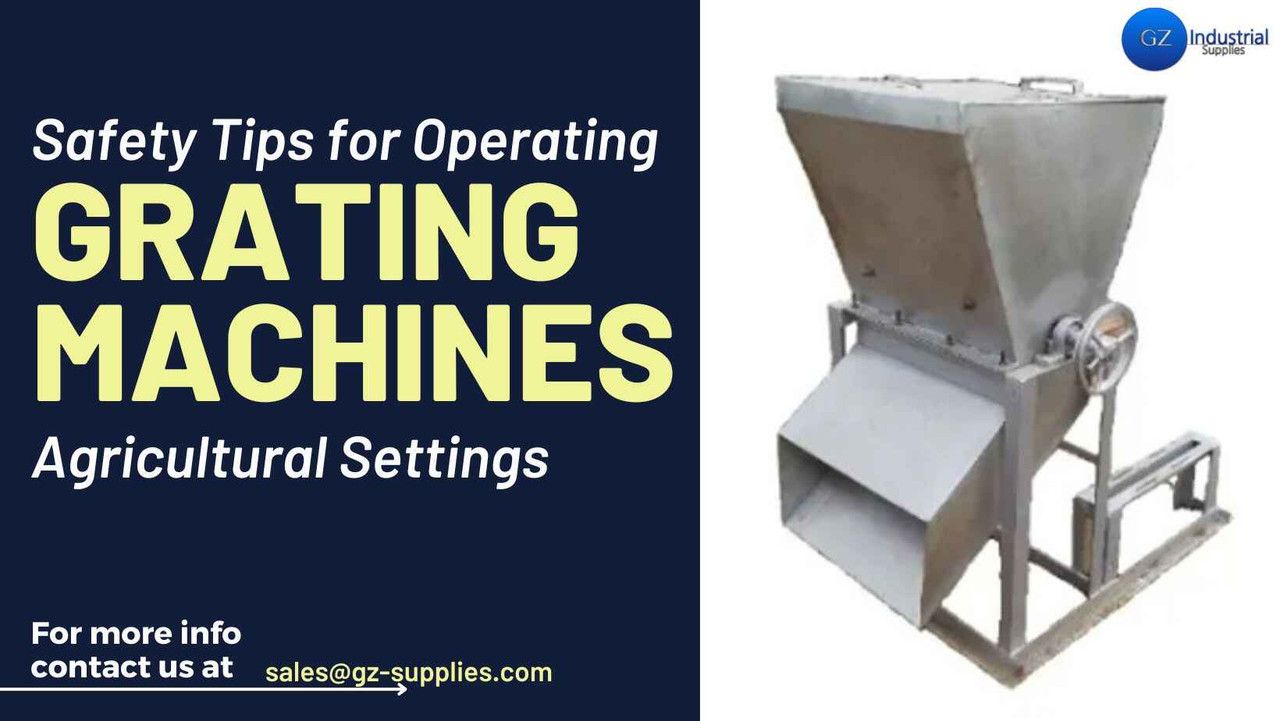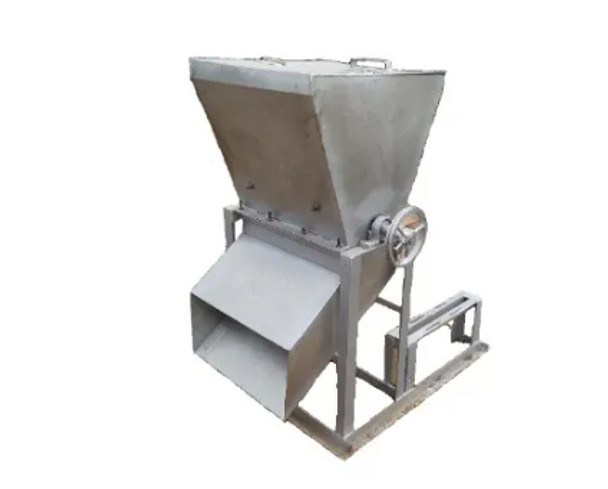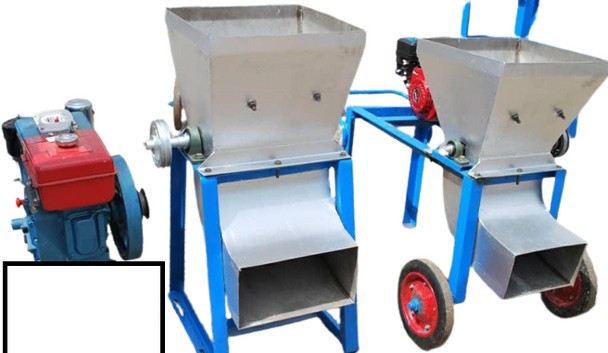Safety Tips for Operating Grating Machines in Agricultural Settings
Key Takeaway
- Pre-Operation Safety Checks: Always inspect the machine for damage, secure all components, and ensure proper functionality before use.
- Use Personal Protective Equipment (PPE): Safety gloves, goggles, and protective clothing are essential for minimizing injury risks.
- Follow Operating Guidelines: Adhere to the manufacturer’s instructions, avoid overloading, and remain focused during operation.
Introduction
Grating machines are indispensable tools in modern agricultural settings, widely used for processing crops like cassava, vegetables, and fruits into finer textures. These machines save time, improve productivity, and reduce manual labor. However, improper handling of grating machines can result in accidents, injuries, or machine damage. Adhering to safety guidelines is essential to ensure both operator safety and machine efficiency. This guide highlights common risks and essential safety tips for operating grating machines effectively in agricultural environments.
Understanding Grating Machines
Grating machines are designed to shred or grate agricultural produce into smaller pieces or paste for further processing. They come in various types to suit specific farming operations:
1. Manual Grating Machines: Operated by hand and ideal for small-scale operations.
2. Semi-Automatic Grating Machines: Powered machines that require some manual assistance.
3. Fully Automatic Grating Machines: Operate with minimal human intervention, offering higher efficiency for large-scale use.
By understanding the machine type and its functions, operators can better prepare for safe usage.
Common Risks and Hazards
Despite their usefulness, grating machines pose several risks if not operated safely. Some common hazards include:
1. Mechanical Hazards: Sharp blades, rotating parts, or moving components can cause cuts, bruises, or serious injuries.
2. Electrical Hazards: Poor wiring, power surges, or exposed electrical connections may lead to electric shocks.
3. Operator-Related Risks: Fatigue, distraction, or lack of proper training can result in accidents or improper machine use.
Recognizing these hazards is the first step to preventing injuries and ensuring smooth operation.
Stainless Gasoline Grating Machine 6.5hp
Safety Tips for Operating Grating Machines
1. Pre-Operation Safety Measures
Inspect the Machine: Before starting, thoroughly check the grating machine for any visible defects, such as loose bolts, worn-out blades, or electrical issues.
Safety Guards: Ensure all safety guards and covers are in place to prevent accidental contact with moving parts.
Power Check: Verify that the power source is stable and the machine is properly grounded to avoid electrical hazards.
Environment Preparation: Keep the workspace clean, dry, and free from obstructions to prevent slips or falls.
2. Personal Protective Equipment (PPE)
Wearing the right safety gear minimizes risks significantly. Operators should use:
Safety Gloves: Protect hands from accidental cuts or abrasions.
Safety Goggles: Shield eyes from flying debris during operation.
Protective Clothing and Boots: Avoid loose clothing and wear sturdy footwear to prevent entanglement and ensure foot safety.
Hearing Protection (if applicable): For noisy machines, ear protection is recommended to reduce long-term hearing damage.
By equipping yourself with the proper PPE, you reduce exposure to mechanical and operational risks.
3. Safe Operation Practices
Following safe practices during the operation of grating machines is critical to preventing accidents and ensuring efficiency. Here are key tips:
Follow Manufacturer Guidelines: Always operate the machine according to the manufacturer’s manual to avoid misuse or mishaps.
Keep Hands and Body Clear: Never attempt to touch or adjust the machine while it is running. Use pushers or designated tools to feed materials into the machine.
Avoid Overloading: Do not exceed the machine’s specified capacity, as overloading can strain the motor, damage components, or cause it to malfunction.
Stay Alert and Focused: Operators must remain focused and avoid distractions while the machine is in use. Avoid using the machine if tired or under the influence of alcohol or medication.
Maintain Workspace Cleanliness: Keep the area free from clutter to prevent trips, falls, or material jams in the machine.
By adopting these safe operating practices, you can minimize risks and improve the overall efficiency of grating machines.
4. Post-Operation Safety Measures
Once you have completed the grating process, it’s important to follow these safety measures to prevent accidents and ensure the machine remains in good condition:
Turn Off and Unplug: Always switch off the machine and disconnect it from the power source before performing any cleaning or maintenance.
Clean Thoroughly: Remove debris and food particles from the machine using tools like brushes, ensuring the blades and motor area are clean and free from blockages.
Inspect Moving Parts: Check for wear or damage to components like blades, belts, or screws after operation. Replace faulty parts promptly.
Safe Storage: Store the machine in a dry, cool place, away from moisture, to prevent rust and electrical issues. Cover the machine when not in use.
Implementing proper shutdown procedures ensures a longer lifespan for the equipment and reduces the likelihood of accidents during the next operation.
Cassava Grating Machine
Training and Supervision
Proper training is essential for anyone operating grating machines in an agricultural setting. Operators must understand how the machine works, its limitations, and the safety guidelines provided.
1. Training Programs: Conduct practical and theoretical training sessions to teach safe handling, maintenance, and emergency response procedures.
2. Supervision for Beginners: New operators or workers with limited experience should be supervised to prevent mistakes or unsafe handling.
3. Regular Refresher Courses: Continuous training keeps operators updated on safety protocols and best practices.
By ensuring all workers are properly trained and supervised, the risk of accidents can be significantly reduced, and productivity can be improved.
Emergency Procedures
Accidents can still occur, even with safety measures in place. Having an emergency response plan ensures quick and efficient action during unforeseen events.
1. Emergency Stop Buttons: Ensure the machine has an accessible emergency stop button for immediate shutdown in case of a malfunction.
2. First-Aid Training: Equip operators with basic first-aid skills to manage injuries such as cuts or abrasions.
3. First Aid Kits: Keep a stocked first-aid kit close to the workspace for immediate treatment of injuries.
4. Report and Document Incidents: Report any accidents promptly to supervisors for investigation and corrective measures.
By preparing for emergencies, workers can reduce the severity of injuries and maintain a safe working environment.
Maintenance Tips for Grating Machines
Proper maintenance ensures that grating machines remain safe, efficient, and long-lasting. Here are essential maintenance tips:
1. Regular Lubrication: Keep all moving parts well-lubricated to reduce friction and prevent wear. Use manufacturer-recommended lubricants.
2. Tighten Loose Components: Frequently check for loose bolts, screws, and fittings, especially after extended usage.
3. Sharpen or Replace Blades: Dull blades can reduce performance and increase risks. Sharpen them regularly or replace worn-out blades promptly.
4. Check Electrical Components: Inspect power cords, switches, and connections to ensure they are free from damage or exposed wires.
5. Schedule Professional Maintenance: Periodically hire a professional to conduct a thorough inspection and service of the machine.
These maintenance practices not only improve machine safety but also extend its operational lifespan.
Grating machine 1ton/hr Hellog
Frequently Asked Questions
1. What are the most common safety hazards when using a grating machine?
The most common hazards include cuts from sharp blades, electric shocks from faulty wiring, and injuries caused by improper operation or distractions.
2. What personal protective equipment (PPE) should I use when operating a grating machine?
Essential PPE includes safety gloves, safety goggles, protective clothing, sturdy boots, and hearing protection in noisy environments.
3. How do I maintain my grating machine for long-term use?
Regularly clean the machine, lubricate moving parts, sharpen or replace blades, check for electrical issues, and schedule professional maintenance.
4. What should I do in case of a machine-related injury?
Immediately turn off the machine, apply first aid if necessary, and report the incident to a supervisor. Always keep a first-aid kit nearby.
5. Can overloading a grating machine cause damage?
Yes, overloading can strain the motor, dull the blades, and damage internal components, reducing efficiency and shortening the machine’s lifespan.
Related Articles
Maintaining Your Grating Machine: Tips for Longevity
The Role of Grating Machines in Modern Farming
The Best Locally Made Cassava Grinding Machines in Nigeria: Features and Prices
How to use a cassava grating machine
Conclusion
Grating machines are vital tools in agricultural settings, significantly improving efficiency and productivity. However, improper operation and lack of safety measures can lead to injuries, machine damage, or delays. By following the outlined safety tips—including pre-operation checks, wearing PPE, adhering to operating guidelines, and performing regular maintenance—you can ensure safe and effective use of grating machines.
Are you looking for reliable grating machines and safety accessories to improve productivity on your farm? VisitGZ Industrial Supplies for high-quality equipment and expert recommendations to meet your agricultural needs. Keep your operations safe, efficient, and productive!











